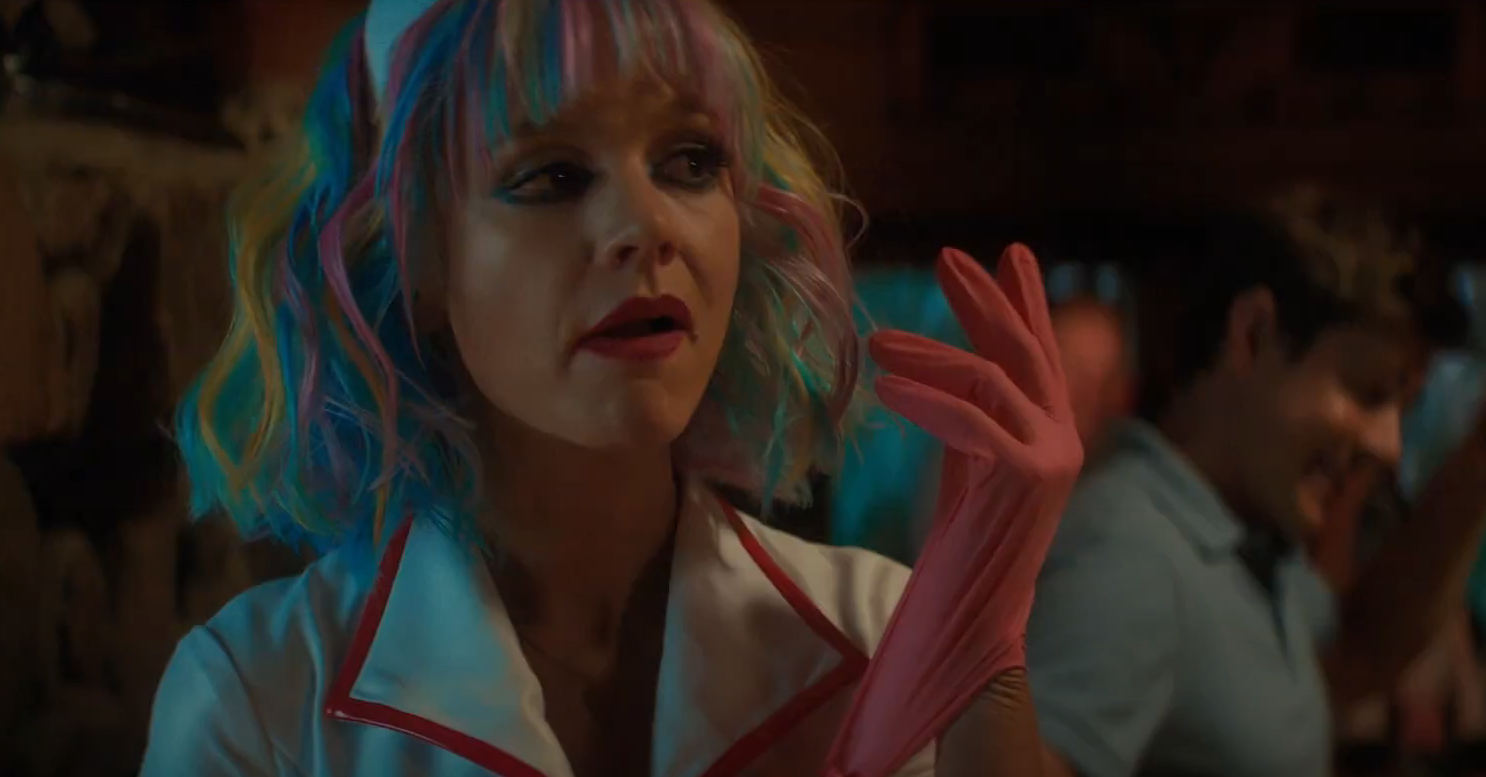
Promising Young Woman
Directed by Emerald Fennell; Winner of Best Original Screenplay
With its classical arrangement of Britney Spears’ “Toxic” blaring over images of Carey Mulligan dressed in a stripper’s nurse outfit spouting platitudes about consent, the pre-pandemic trailers for Emerald Fennell’s directorial debut seemed to intentionally pitch the film as an alienating experience tailor made to fill the Facebook newsfeeds of Elizabeth Warren devotees. Thankfully, Fennell executes Promising Young Woman as a rape-revenge and rom-com hybrid that substitutes ethical ambiguity for easy caricature. As Cassandra, Mulligan inhabits a character who exists as a series of performances transforming from lackadaisical barista to vulnerable best friend to exterminating angel while conveying that the trauma which stunted her thirtysomething life and killed her dreams in her mid twenties has also annihilated her identity to the point that she no longer recognizes herself as anything but a cypher bent on martyrdom. Ensconced in its pop-art meets 80s-suburban world, the film seems much more concerned with probing the toll of warranted revenge than rote fictionalization of #metoo tweets, which angered many social-justice minded critics. Yet, while its artistry and narrative subversiveness warrant acclaim, conflating Cassandra’s middle-class patriarchal resistance with Fennell’s glass-ceiling shattering awards clout seems, at best, misguided. The daughter of British jewelry and silverware designer Theo Fennell, the film’s director may well have been born with a silver spoon in her mouth. As Sofia Coppola’s enduring auteur status indicates, such privilege does not necessarily dilute art, but it does raise questions about the limits of Hollywood’s inclusion and identification with the college women of flyover country (or even the far corners of Los Angeles) central to films like Promising Young Woman.
